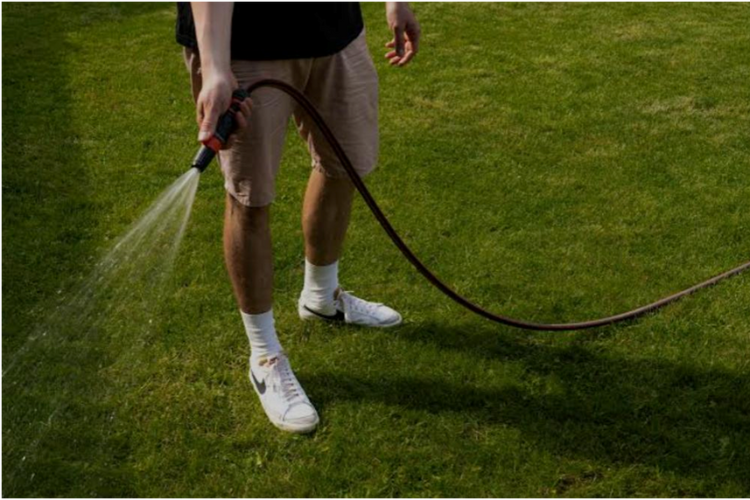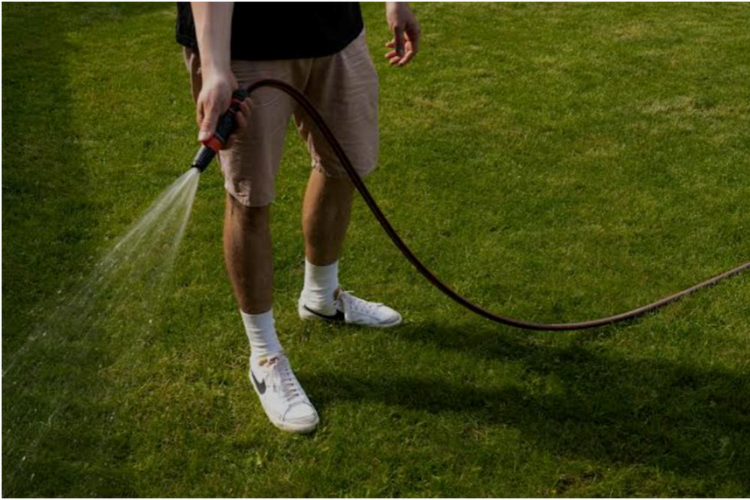Eco-Friendly Lawn Care: The best BKR lawn mowers for a Greener lawn
Adopting eco-friendly lawn care practices not only benefits the environment but also creates a healthier lawn. By reducing your reliance on chemicals, conserving water, and embracing biodiversity, you can enjoy a beautiful yard that supports both local and wildlife and sustainable living. Start small and gradually integrate these changes into your routine for a greener more eco-conscious outdoor space.
Maintaining a lush, healthy lawn doesn’t have to come at the expense of the environment. By adopting eco-friendly lawn care practices, you can reduce your carbon footprint, conserve water, and promote biodiversity, all while keeping your yard looking its best. Here are some tips and strategies for a sustainable approach to lawn care:
1. Always select Native Grasses: Native grasses are naturally adapted to the local climate, which means they require less water, fertilizer, and maintenance compared to exotic species. Opt for drought-tolerant varieties such as buffalo grass or fescue, which can thrive in many regions. Not only will this reduce your water usage, but it will also promote a healthier ecosystem by supporting local wildlife.
2. Avoid Chemical Fertilizers and Pesticides: Conventional fertilizers and pesticides can harm beneficial insects, contaminate water supplies, and deplete soil health over time. Instead, use organic fertilizers made from compost, manure, or plant-based materials. To control pests naturally, encourage the presence of helpful predators like ladybugs and birds, and use non-toxic alternatives like neem oil or diatomaceous earth when needed.
3. Use Compost for Healthier Soil: One of the best ways to nourish your lawn naturally is by composting. Compost adds organic matter to the soil, improves its structure, and enhances its water-holding capacity. You can compost grass clippings, fallen leaves, and kitchen scraps. Apply the compost to your lawn in thin layers, or use it as a mulch around plants and garden beds.
4. Mow High and low grasses: Setting your mower blades higher, around 3 to 4 inches, encourages deeper root growth and shades out weeds, reducing the need for herbicides. Additionally, leaving grass clippings on the lawn acts as a natural fertilizer, returning nitrogen and other nutrients to the soil. BKR Cylindrical Manual Lawn Mower Is made with a special hardened cast iron frame and high-quality metal materials for long-lasting durability and performance. You can collect grass clippings with ease using the steel grass box, minimizing the need for frequent emptying.
5. Water accordingly: Over-watering is one of the most common mistakes in lawn care and leads to water waste and shallow root systems. Water early in the morning to minimize evaporation. Use a drip irrigation system or soaker hoses to target the roots. Water deeply but less frequently, encouraging deep root growth and making your lawn more drought-resistant.
6. Plant Ground Covers and Reduce Lawn Size: Consider replacing part of your lawn with ground covers such as clover, thyme, or creeping phlox. These plants require less water, are low-maintenance, and support pollinators. Reducing the overall size of your lawn and incorporating native shrubs, wildflowers, or a vegetable garden can further reduce the need for maintenance and increase biodiversity.
7. Aerate Your Lawn: Aeration involves perforating the soil with small holes to allow air, water, and nutrients to penetrate deep into the roots. This process reduces soil compaction, improves drainage, and encourages stronger root growth. Aim to aerate your lawn once a year, especially in areas with heavy foot traffic.
8. Mulch Your Garden Beds: Mulching garden beds with organic materials such as straw, wood chips, or bark not only conserves moisture but also suppresses weeds and moderates soil temperature. Mulch breaks down over time, adding nutrients to the soil and improving its overall health.
9. Encourage Beneficial Wildlife: Welcoming beneficial wildlife into your yard can naturally control pests and promote a balanced ecosystem. Birds, bees, and butterflies are crucial pollinators, while earthworms and other soil organisms improve soil structure. You can attract these creatures by planting a diverse range of native flowers, installing birdhouses, and avoiding pesticides.
10. Use Electric or Manual lawn mower: Switching to electric or manual alternatives is a more eco-friendly option. For small lawns, consider a push reel mower, which is entirely manual. Use mowers and trimmers, BKR heavy duty 18-inch manual lawn mower with side wheel. It can operate without fuel or electricity making it an environmentally friendly choice, Mitigate air pollution and greenhouse gas emissions. Electric mowers are quieter, produce zero emissions, and are often easier to maintain. BKR 1200 Watt Electric lawn mower is the best option to achieve your desired lawn as it requires less maintenance, also raising the deck to its fullest height position will help you handle tall grass.







